With Muslims set to observe the month of fasting on May 6, where they refrain from eating or drinking between dawn and sunset every day, pharmacists play an important role in helping manage their medications around this new schedule.
This article provides useful tips for pharmacists to help their Muslim patients throughout Ramadan, from general counselling tips, adjusting medication doses, and managing select chronic illnesses such as hypertension and diabetes.
What is Ramadan?
Ramadan is the ninth month of the Islamic calendar, and is considered to be a holy month for Muslims. During Ramadan, Muslims don’t eat or drink between dawn and dusk every day (i.e. during sunlight hours).

Fasting during Ramadan is important to Muslims, and it constitutes one of the Five Pillars of Islam, which is the foundation for how Muslims worship. Ramadan is a time for spiritual reflection, prayer, doing good deeds, and becoming closer to God. It is celebrated with friends, family, and the Muslim community.
The Islamic calendar is based on the lunar calendar (i.e. the cycles of the moon), and so Ramadan isn’t a fixed date as the Western (i.e. solar) calendars are. This year, Ramadan falls between around May 6 to June 6. In Canada, the average daily fast will be 17 hours. Muslims start the fast with a pre-dawn meal known as Suhoor, and break the fast at sunset with a meal called Iftaar.
Exemptions from fasting
Not everyone has to fast during Ramadan. The Qur’an makes it clear that fasting is not intended to cause difficulty for Muslims.
So every one of you who is present (at his home) during that month should spend it in fasting, but if any one is ill, or on a journey, the prescribed period (should be made up) by days later. Allah intends every facility for you; He does not want to put to difficulties.
Qur’an 2:185
Therefore, there are people who are exempt from fasting, including:
- Children
- Elderly
- Ill (chronic or acute)
- Travellers
- Pregnant and breastfeeding women
However, because fasting during Ramadan is an important religious practice, many exempted people often choose to fast. For example, up to 86% of patients with type 2 diabetes choose to fast during Ramadan, and almost half (43%) of patients with type 1 diabetes continue to fast.1
The rules for each exempted group differs, from making up missed days at a later time, or providing one meal to a poor person for every missed day of fasting. Patients with acute or chronic illnesses should seek advice from their Imam (i.e. religious leader) if they are to miss fasting.
Role of pharmacists during Ramadan
Pharmacists should be proactive with their Muslim patients, and engage in a culturally sensitive conversation before the month of Ramadan begins to identify if a patient can fast safely. The decision to fast is ultimately with the patient, but it is our professional duty to lay out the risks of doing so based on a patient’s condition and/or medications, so they can make a fully informed decision. If a patient decides to fast, remember to remain respectful of their personal wishes and religious beliefs, and offer counselling on how to best manage their condition and medications while fasting.
Because oral medications are prohibited during the fasting hours, medication schedules may need to be adjusted. However, with a lack of guidance from their healthcare team, medication compliance is severely affected during Ramadan. A survey in the UK found that 23% of patients did not take their medications at all during Ramadan.2 Just as alarming is that 48% of patients doubled their dose to compensate for medications normally taken twice a day.2 It is clear that Muslims with chronic illnesses require counselling and advice on how to manage their medications during the month of fasting.
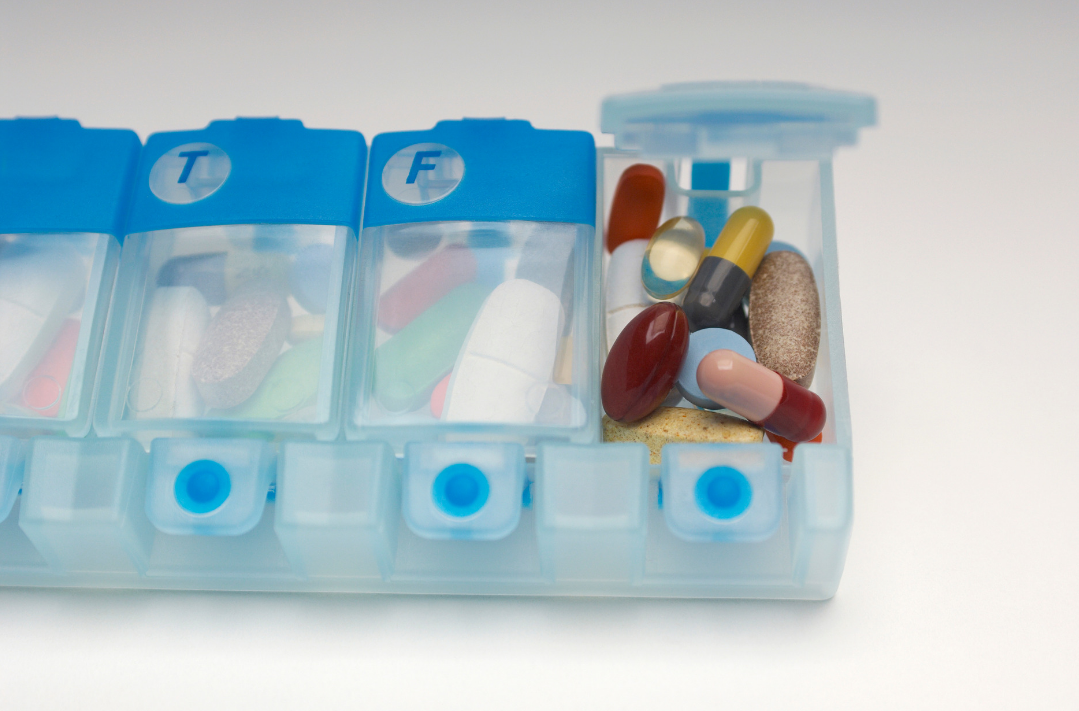
What can pharmacists do?
Pharmacists play an integral role in patients having a safe Ramadan. With an expanded scope of practice that allows for prescription adaptations and dosage or formulation changes, pharmacists can help patients adjust their medications to best fit the fasting hours. Where something falls out of a pharmacist’s scope, they can contact the patient’s physician to make the necessary changes to their medication regimen before Ramadan starts. This is why it is important to initiate the conversation before the month of Ramadan.
Pharmacists should advise patients to not stop or alter any prescribed medications without consulting their pharmacist or physician first. Patients should also be aware that every individual is different and respond to medications in different ways, and they should not follow the advice of friends or family, even if those people have the same conditions as them. Emphasize the importance of seeking help from a pharmacist or physician about medication changes during Ramadan.
General counselling tips
1) Hydration
Patients should be advised to consume a lot of water during the non-fasting hours of the day to prevent dehydration. Patients should also minimize strenuous activity or exercise and avoid exposure to sun and high temperatures.
Counsel patients that if they become dehydrated they should immediately break the fast and rehydrate.3 This is particularly important in patients taking medications that have adverse effects with dehydration (remember SAD MANS medications). For example, dehydration can increase the risk of acute kidney injury for patients taking ACE inhibitors.
Medications that are usually advised to be held if patients are unable to maintain adequate fluid intake (i.e. “sick days”)4 :
Sulfonylureas
ACE inhibitors
Diuretics, direct renin inhibitors
Metformin
ARBs
NSAIDs
SGLT2 inhibitors
If fasting without becoming dehydrated is difficult due to the long summer days, you should encourage patients to speak with their Imam about postponing the fast until the shorter days of winter months.
All patients should be advised to avoid caffeine-containing beverages, such as tea, coffee and cola, to minimize the risk of dehydration.2 Recommend to your patients to reduce the quantity consumed before Ramadan to prevent physical withdrawal symptoms, such as headaches, irritability and mood swings.2
2) Diet
All patients should be advised to follow a general healthy and balanced diet. Refer them to Canada’s Food Guide for help planning meals, or if necessary tell patients to see a dietician for further advice.
Suhoor (the pre-dawn meal) should be a well-balanced meal that includes complex carbohydrates (e.g. barley, wheat, oats, beans, lentils, semolina) and fiber-rich foods (e.g. bran, whole-grain cereals and breads, fruits) which are slowly released while fasting.5,6 Suhoor should be eaten as late as possible before the start of the daily fast, and patients should be reminded not to skip or miss this meal.7
Simple carbohydrates may be more appropriate for Iftaar (the evening meal).6 Counsel patients to avoid heavily processed foods, high glycemic carbohydrates (e.g. refined sugar, white bread, white rice) and fatty foods.5,6 Instead, encourage a balanced diet that includes protein and vegetables.

It is traditional to break the fast with dates. Advise patients with diabetes to limit their intake of dates to three per day to avoid a spike in blood glucose.6
3) Exercise
While normal levels of physical activity is encouraged, excessive exercise should be avoided to prevent dehydration and hypoglycemia.6
4) Adjusting medications
Pharmacists can help patients adjust their medications during Ramadan to ensure safe and effective therapy while fasting. Medication adjustments can include: adjusting the timing of medications throughout the day, changing short-acting formulations to longer once- or twice-daily doses, or considering alternate routes of administration. Non-oral medications, including injections, patches and gels, do not invalidate the fast.5
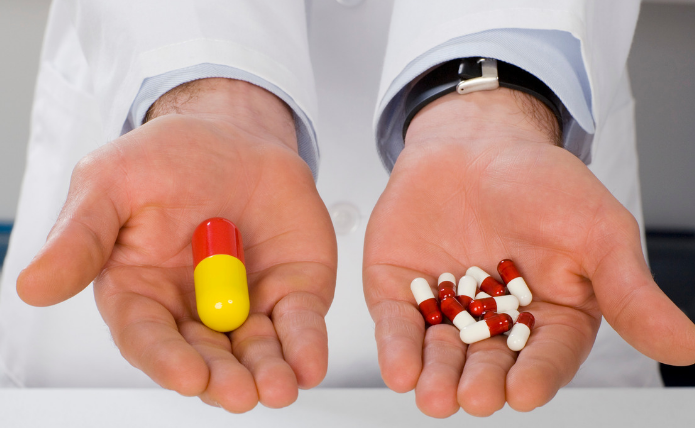
| Once-daily doses |
|
| Twice-daily doses |
|
| More than twice-daily doses |
Managing acute illnesses
For acute illnesses, medications with once-daily dosing, such as antibiotics for an infection or NSAIDs for pain, should be selected.9 For example, azithromycin may be preferable to treat an infection over amoxicillin. Remember that although sick people are exempted from fasting, it is the patient’s decision to choose if they will fast through their illness.
Considerations for select chronic illnesses
Hypertension
Most patients with controlled hypertension do not experience changes in their blood pressure during Ramadan.10 However, for those with difficult to control hypertension, fasting should be avoided until their blood pressure is reasonably controlled.10
During Ramadan, patients with hypertension should regularly monitor their blood pressure, avoid dehydration through adequate water intake during the evening and non-fasting hours, and to watch for signs of hypotension such as dizziness and lightheadedness.9
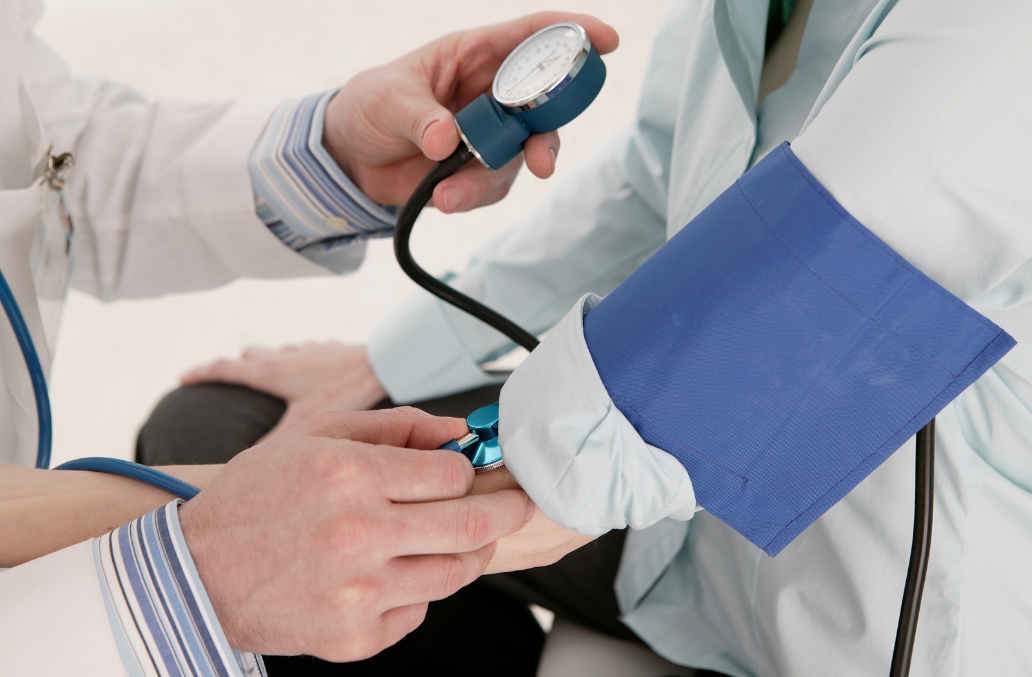
Anti-hypertensive medications may require adjustments during Ramadan to prevent hypotension. Twice-daily antihypertensives can be taken at Suhoor right before patients start their fast, and at Iftaar right after breaking the fast in the evening.10
Diuretics in particular may be inappropriate during Ramadan.10 If used, they should be administered in the early evening when patients can maintain water intake.10
Hypothyroidism
Although we advise patients to take levothyroxine 30 minutes before breakfast, Muslim patients may find this difficult to continue during Ramadan as they may not be able to wake up 30 minutes before their pre-dawn meal. If this is the case, levothyroxine should be taken before bedtime instead.11
Diabetes
Diabetes is one of the most difficult conditions to manage during Ramadan. Although diabetics are not required to fast, most (86%) still do.1,9 Patients should be made aware of the risks of fasting, particularly of having an increased risk of hypoglycemia and diabetic ketoacidosis.9 It can be advised to postpone the long, summer days of fasting to the shorter, winter days. Risk-stratification tools are available to help categorize which patients can fast safely, those who may fast with medical advice, and those who should not fast.12
With your help as a pharmacist, fasting during Ramadan can be beneficial for patients with type 2 diabetes. While those who adjust their own medications are more likely to experience severe hypoglycemia during Ramadan, patients who had individualized education from healthcare professionals are able to lose weight, improve glycemic control and avoid severe hypoglycemia.9
Individualized education for patients with diabetes addressed issues of meal planning (emphasizing a healthy balanced diet), maintaining normal (but not excessive) physical activity, increasing blood glucose self-monitoring, and managing their medications and acute complications.13,14
Patients should be advised to increase their self-monitoring of blood glucose levels while fasting.12 Blood sampling is not considered to invalidate the fast. Counsel patients that if they experience hypoglycemia, they must always and immediately break their fast, because blood glucose levels only drop further without treatment.8 Fasts should also be broken if blood glucose exceeds 16.7 mmol/L to prevent diabetic ketoacidosis and other complications of hyperglycemia.8
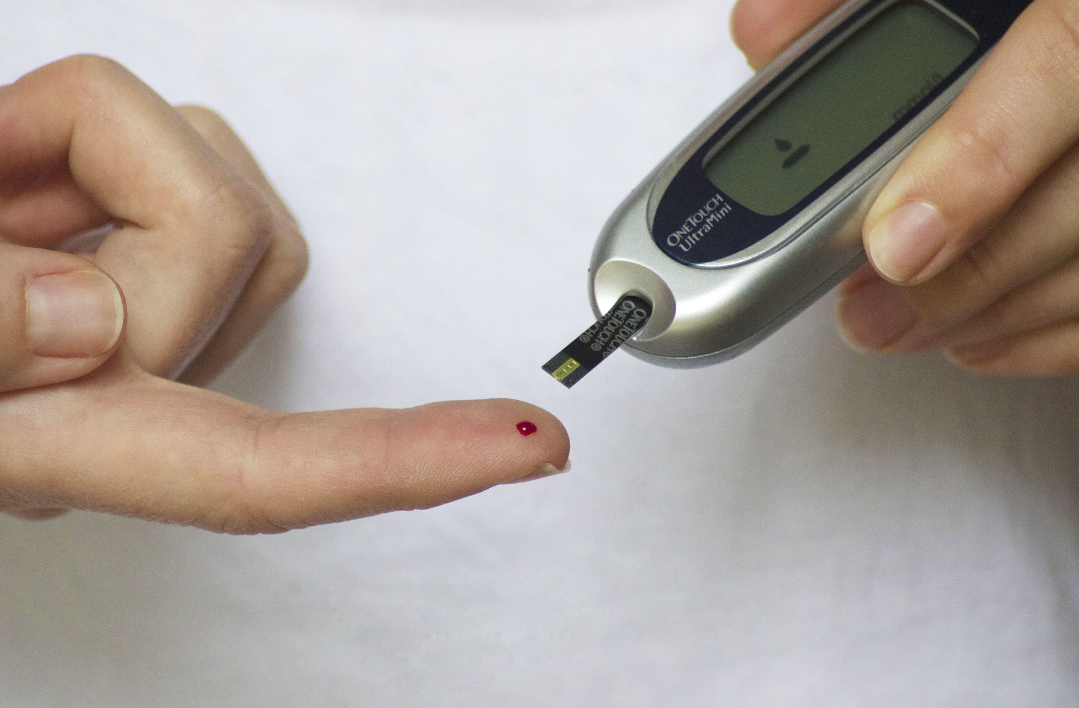
Depending on a patient’s diabetic medication regimen, the doses, timing and/or frequency of anti-hyperglycemics may need to be adjusted, primarily to avoid hypoglycemia. Agents that have a low hypoglycemic risk usually do not have to be adjusted.
| Metformin |
|
| Thiazolidinediones (glitazones) | |
| Meglinitides | |
| Sulphonylureas |
|
| GLP-1 receptor agonists and DPP-4 inhibitors |
|
| SGLT-2 inhibitors |
|
| Insulin |
|
After Ramadan
When the new moon is sighted, Ramadan ends (after 29 or 30 days) with a celebration called Eid-ul-Fitr. Some Muslims continue to fast for a few days after Ramadan ends to continue their spiritual connection, or make up missed fasting days.
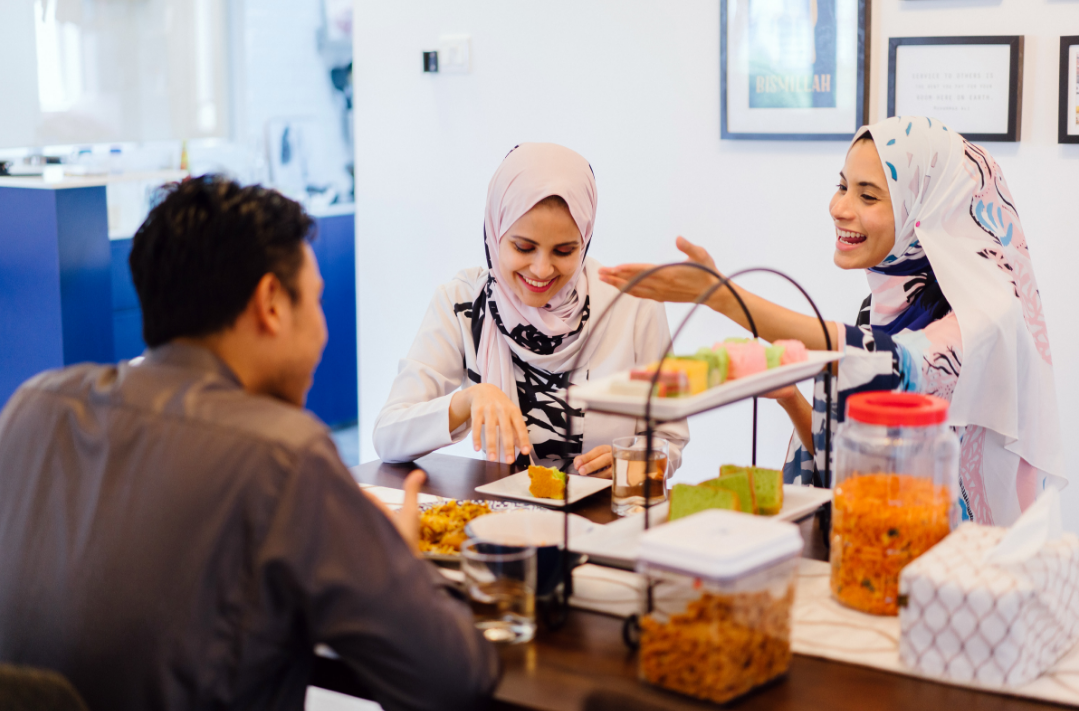
It is important to check in with patients after Ramadan ends to ensure that their medications are switched back to their regular regimens. Medication schedules, dosage forms, and any medications temporarily held during the month, should be re-adjusted.
References
- Salti et al. A population-based study of diabetes and its characteristics during the fasting month of Ramadan in 13 countries: Results of the epidemiology of diabetes and Ramadan 1422/2001 (EPIDIAR) study. Diabetes Care. 2004;27(10):2306-2311.
- NHS Tower Hamlet Clinical Commissioning Group (2015).Information for healthcare professionals on fasting and medicines during Ramadan.
- Duff B. Ramadan, Medications, and the Pharmacist. Drug Topics. May 2018.
- Diabetes Canada 2018 Clinical Practice Guidelines for the Prevention and the Management of Diabetes in Canada: Appendix 8: Sick-Day Medication List. Canadian Journal of Diabetes. 2018;42(Suppl 1):S316.
- Khalife et al. Caring for Muslim patients who fast during Ramadan. American Family Physician. 2015; 13(3):152-159.
- Alsafadi et al. Managing diabetes in people fasting during Ramadan. American Family Physician. 2015;91(9):640-642.
- Al-Arouj et al. Recommendations for management of diabetes during Ramadan: update 2010. Diabetes Care. 2010;33(8):1895-1902.
- Begum, Y. GP guide to managing patients who wish to fast during Ramadan. Prescriber. 2011;22(13):14-21.
- Grindrod and Alsabbagh. Managing medications during Ramadan fasting. Canadian Pharmacists Journal. 2017;150(3):146-149.
- Chamsi-Patel et al. The cardiac patient during Ramadan fasting. Journal of the Saudi Heart Association. 2014;26(4):212-215.
- Raza et al. Thyroid diseases and Ramadan. Indian Journal of Endocrinology and Metabolism. 2012;16(4):522-524.
- Bajaj et al. Diabetes Canada position statement for people with types 1 and 2 diabetes who fast during Ramadan. Canadian Journal of Diabetes. 2019;43(1):3-12.
- McEwen et al. Impact of an individualized type 2 diabetes education program on clinical outcomes during Ramadan. BMK Open Diabetes Research and Care. 2015;3(1):e000111.
- Tourkman et al. Impact of Ramadan focused education program on hypoglycemic risk and metabolic control for patients with type 2 diabetes. Patient Preference and Adherence. 2016;10:1709-1717.
Featured image source: Greenlight Pharmacy, Euston; courtesy of Nadia Bukhari

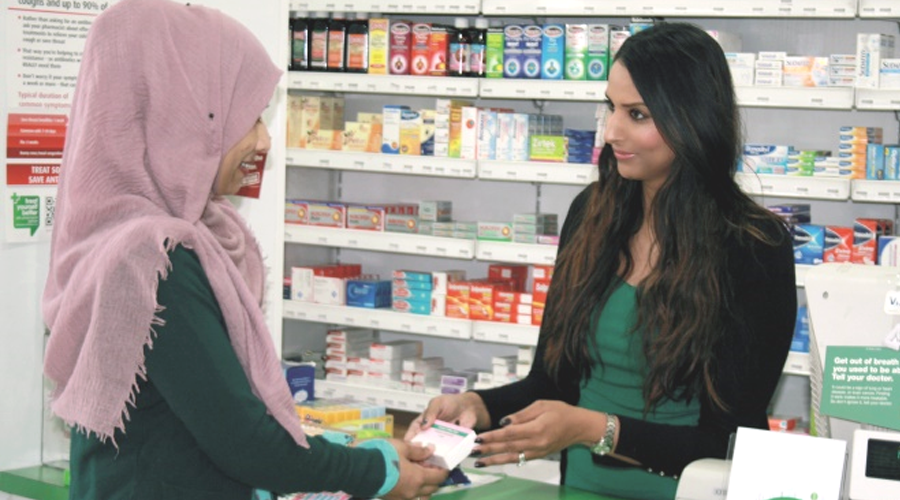
Thank you for teaching me something today.
LikeLike
I used to worry constantly about my diabetes, but this product has given me peace of mind. It’s a comprehensive tool that keeps me informed and in control. click here to experience the difference!
LikeLike
Useful Insights. Thanks for sharing
LikeLike